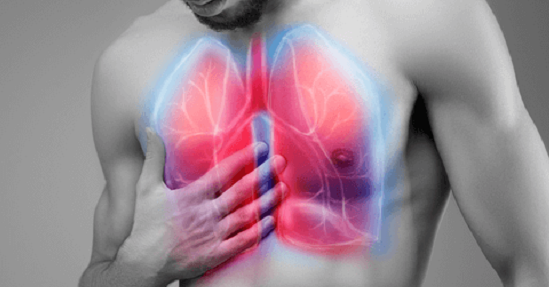Dr. Shilpa Gandhi | Leading Consultant Minimally Invasive Thoracic Surgeon In Nagpur
Aspergilloma

What is Aspergilloma
Aspergillosis refers to an infection caused by various types of Aspergillus fungi. These fungi are commonly found outdoors in dead leaves, plants, soil, and compost, and occasionally in moist indoor environments.
Most people inhale Aspergillus spores daily without becoming ill. However, in certain individuals, Aspergillus can trigger allergic reactions, chronic lung conditions, and invasive disease that can spread to the brain, kidneys, lungs, or other organs.
What are the types of aspergillosis?
Types of aspergillosis include:
- Allergic bronchopulmonary aspergillosis (ABPA).
- Aspergilloma (“fungus ball”).
- Chronic pulmonary aspergillosis.
- Invasive aspergillosis, which commonly presents with fever.
What are the symptoms of aspergillosis?
- Coughing, sometimes with blood in the sputum.
- Shortness of breath (dyspnea).
- Wheezing or noisy breathing.
- Chest pain.
- Fever.
What tests will be done to diagnose aspergillosis?
Here are the tests a healthcare provider may use to diagnose aspergillosis:
Allergy Tests: Blood or skin tests to detect allergic or chronic forms of aspergillosis.
Biopsy: Sampling tissue or fluid to examine for signs of an Aspergillus infection.
Blood Tests: Used to diagnose invasive aspergillosis early in individuals with severely weakened immune systems.
Culture: Taking samples of body fluids (like blood, mucus, or fluid around the lungs, brain, or spinal cord) to grow Aspergillus for diagnosis.
Imaging: X-rays or CT scans to detect signs of Aspergillus infection in specific areas of the body suspected to be affected.
How is aspergillosis treated?
Surgery: Used to cure single fungus ball aspergillosis and in specific cases of invasive or allergic forms; generally not recommended for chronic pulmonary aspergillosis.
Antifungal Treatments: Various medications like voriconazole, isavuconazole, posaconazole, itraconazole, liposomal amphotericin B, caspofungin, or micafungin are used. If one type doesn’t work, another may be prescribed.
Corticosteroids: Reduce inflammation and can be prescribed orally, inhaled, nasal spray, or topically, depending on the type and location of the aspergillosis infection.
How can I prevent aspergillosis?
- Medical Guidance: Consult your healthcare provider about:
- Prescribing antifungal medication for prevention.
- Regular testing for early detection and treatment of infections.
- Environmental Precautions:
- Avoid areas with high dust or mold concentrations, like construction sites or compost piles.
- Refrain from activities that expose you to airborne dust or mold, such as gardening or lawn mowing.
- When exposure is unavoidable, wear an N95 face mask to reduce inhalation of airborne particles.



